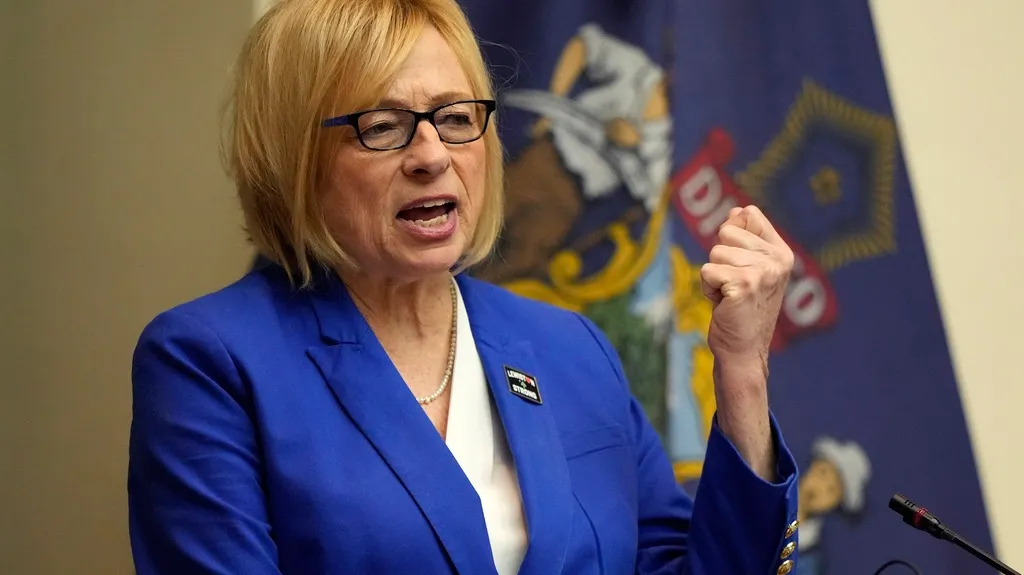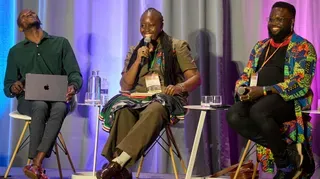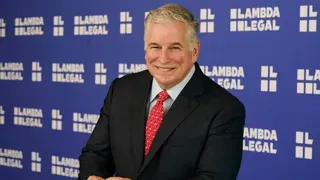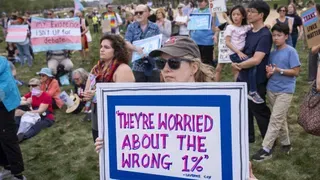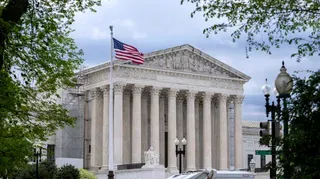March 26, 2009
Report: LGBs more likely to be poor
Robert Nesti READ TIME: 4 MIN.
There are "many reasons to think that LGB people are at least as likely-and perhaps more likely-to experience poverty" than their heterosexual counterparts, according to "Poverty in the Lesbian, Gay, and Bisexual Community," the first report ever to look at the subject in depth.
The overall rate of poverty in the United States was 12.5 percent in 2007. Lesbian couples and the children of same-sex partners definitely are more likely to live in poverty than are their heterosexual counterparts, the report's lead co-authors Randy Albelda and Lee Badgett told members of the LGBT congressional caucus at a briefing March 20.
Badgett said "the myth of gay affluence" is what motivated her to get involved in the field. Gay magazine surveys have found that their readers are affluent, which is typical of all magazine subscribers, and antigay groups have spun this into an assertion that all gays are rich and powerful and therefore do not need legal protection from discrimination.
Her earlier research debunked this myth, "but that research aimed at the middle of the income distribution." She said an out lesbian friend working at a homeless shelter for women had noted that 20-25 percent of her clients were gay or bisexual.
"This is a part of the community we don't hear much about, they are invisible in many ways." The main group of poor LGBT people who have been studied is homeless kids who have run away or been kicked out by their families, she said.
"We know that gay families have less access to the institutional supports that come with marriage and often we see that they don't get as much family support as their heterosexual siblings and colleagues get ... and same-sex couples are twice as likely to be uninsured as people who are married."
Badgett lamented the fact that the 2000 U.S. Census does not ask questions about sexual orientation. Her analysis was based upon data from the census on same sex unmarried couples living together, the 2002 National Survey of Family Growth, and the 2003/5 California Health Interview Survey.
Albelda reminded the audience that their analysis only covers couples. "Individuals are much more likely to be poor than people in two adult households." There seems to be a synergistic effect between other risk factors for poverty and being gay or lesbian.
"Not surprisingly, lesbian couples have statistically significantly higher poverty rates than married heterosexual couples, and gay men have lower rates," she said.
About 20 percent of same-sex couples had children living in the household, a lower figure than their heterosexual counterparts. "What was striking was the very high level of poverty among the kids in gay and lesbian couples." Surprisingly, " [ t ] he children of gay male couples were much more likely to be poor."
Albelda said most anti-poverty programs in the U.S. are designed from the default position of a single parent household with children, "there is no incentive whatsoever to claim somebody's income in the household if you don't have to." This discourages heterosexual marriage.
At the same time, employment based benefits packages "are based on a male breadwinner model" with families in mind. "Gay and lesbian families don't look like either of those," she said.
One thing that surprised Albelda is the effect of education: "Highly educated lesbian and gay male couples are much less likely to be in poverty than comparably educated married couples. And the reverse is true, those [ lesbians and gay men ] with lower levels of education are much more likely to be poor. So the payoff for education at both ends is much more extreme for gay and lesbian couples."
Badgett said employment discrimination is a major explanation of lower economic status: "We see a large income gap for gay men compared with heterosexual men."
Some reports have suggested that gay men are more likely to be self-employed, perhaps by choice, suggesting that perhaps they might be making career choices based on job satisfaction rather than on maximizing income. But Badgett said she has not seen good data confirming any of this.
Another possibility is that some people might be limiting their income in order to meet eligibility qualifications for programs such as housing assistance or the AIDS drug assistance programs.
Albelda readily acknowledged anecdotal accounts of this occurring though she is not aware of any data on the extent of that activity. She said with incomes between about $13-$25 an hour "you run in place and lose valuable support" as your income increases.
Diego M. Sanchez, legislative assistant to Rep. Barney Frank, said this is a problem for people living with HIV in the congressman's Boston area district. "If you make too much money you don't get medical entitlements, you get pulled off of the waiting list for housing."
He said they are working to try to remove these disincentives in the Medicare and Medicaid program.
"Poverty in the Lesbian, Gay, and Bisexual Community" was prepared by The Williams Institute at UCLA and is available online at www.law.ucla.edu/WilliamsInstitute/pdf/LGBPovertyReport.pdf .
Robert Nesti can be reached at [email protected].
